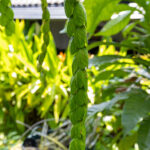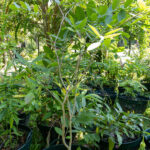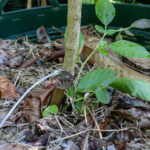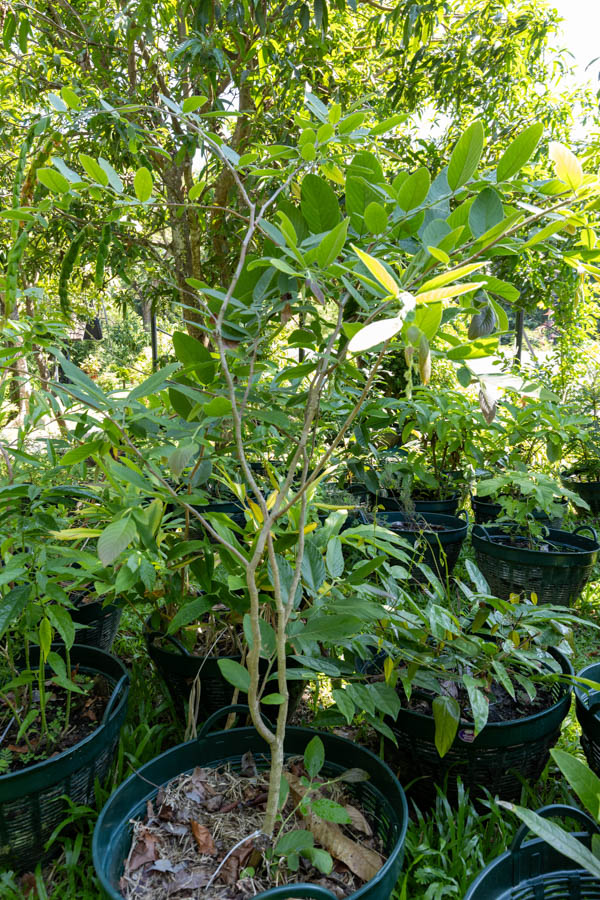เพกา (Peka) / Indian Trumpet Flower
Family: Bignoniaceae
Oroxylum indicum, known in Thailand as เพกา or “Peka,” is a tropical deciduous tree widely used in Thai traditional medicine. It is easily identified by its tall, straight trunk and long hanging seed pods resembling swords. In Thai folklore, the plant is both medicinal and symbolic, often associated with cleansing and renewal.
Botanical Characteristics
The tree grows up to 12 meters tall with large, pinnate leaves and a smooth, pale bark. Its flowers are purple-brown and trumpet-shaped, opening at night and attracting bats for pollination. The most striking feature is its long, flat, sword-like pods that can reach up to one meter in length.
Use in Thai Traditional Medicine
The bark, seeds, and pods of เพกา are used for detoxification, liver health, and digestive balance. The bitter young pods are cooked as a vegetable and believed to help reduce internal heat and cleanse the blood. Decoctions made from the bark are used to treat sore throats, ulcers, and respiratory infections.
Medicinal Compounds
Key active compounds include flavonoids, oroxylin, and baicalein, which have antioxidant and anti-inflammatory properties. These support liver function, improve digestion, and strengthen the immune system.
Culinary and Cultural Uses
In Thai cuisine, young pods are often grilled or boiled to reduce bitterness and eaten with chili paste. The plant’s symbolism in Thai culture relates to endurance and purity—its tall, clean form is said to represent moral strength.
Cultivation Notes
Oroxylum indicum grows well in full sun and moist, well-drained soil. It is drought-tolerant once established and thrives in tropical and subtropical climates. Propagation is usually by seeds or cuttings from mature trees.
Disclaimer: This information is provided for educational and historical purposes only. It is not intended as medical advice. Always consult a qualified healthcare professional before using any herbal preparation.




